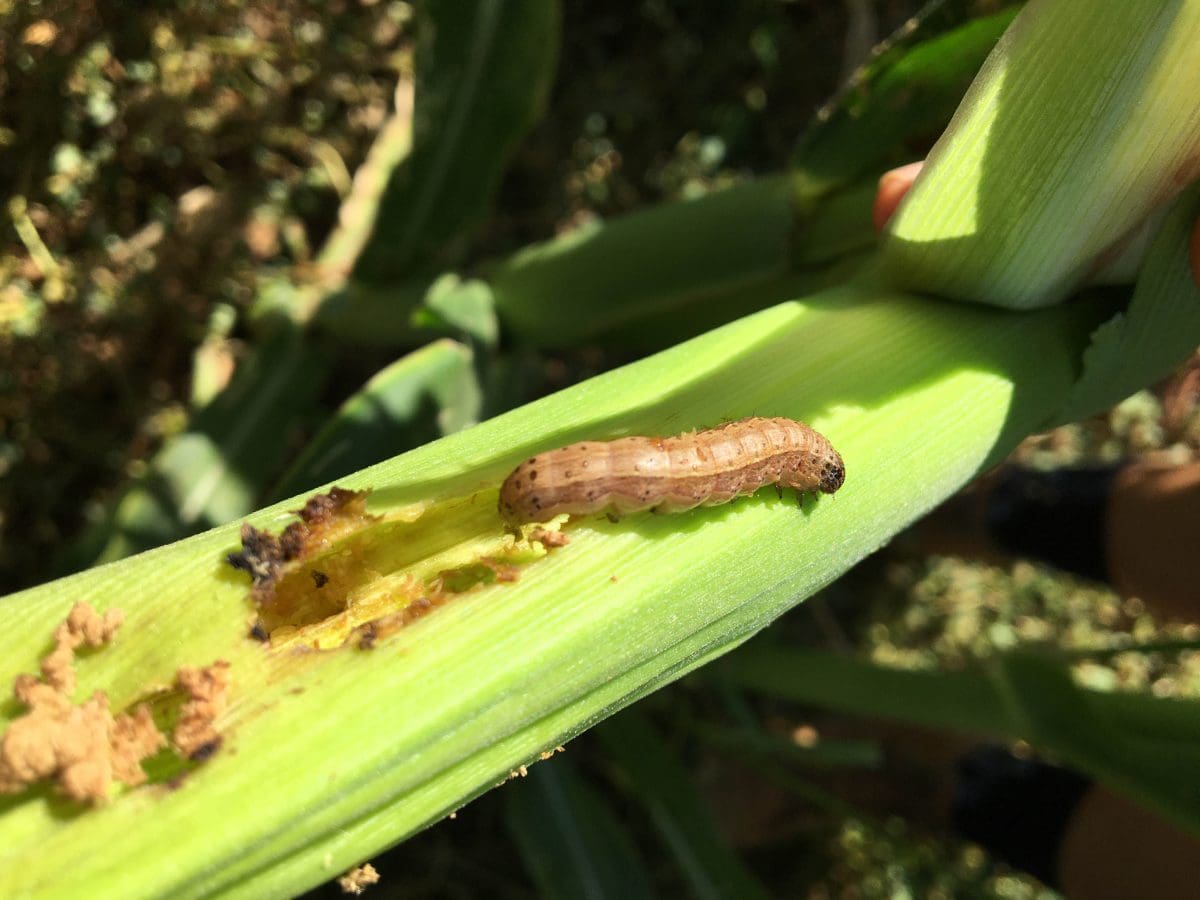
Fall armyworm
PESTICIDE resistance genes have been detected in Western Australia’s fall armyworm population.
Research coordinated by the WA Department of Primary Industries and Regional Development (DPIRD) involved small samples of fall armyworm larvae being collected from discrete areas of northern WA – a maize field in Kununurra, and sorghum and Rhodes grass in Broome.
Samples were screened by the Insecticide Resistance Unit in the Biosecurity and Food Safety area of New South Wales Department of Primary Industries (NSW DPI) for three mutations that confer resistance to Group 1 pesticides.
DPIRD applied entomologist and fall armyworm project manager Helen Spafford said the analysis revealed that all of the larvae in the two samples carried at least one mutation, raising the need for further research and grower awareness.
“Half of the larvae from Kununurra and 60 per cent from Broome were homozygous resistant for the same mutation,” Dr Spafford said.
“While further testing is necessary, this demonstrates the presence of a gene for resistance in fall armyworm across two locations in the Kimberley region, and the potential for the mutations to be more widespread.
“This finding also highlights the need for careful management of Group 1 pesticides – which include carbamate and organophosphate insecticides, to slow the rate at which these genes become established in the State’s fall armyworm population.
“Growers are encouraged to judiciously select any pesticides to be used, and ensure insecticides are rotated to reduce selection pressure.”
Genetic testing
Dr Spafford said further genetic testing was being carried out in collaboration with NSW DPI on additional samples collected from throughout the Ord Valley to determine how widely distributed the resistance trait is, and validate preliminary research results.
“In spite of the early nature of these findings, we are sharing the research outcomes with stakeholders to encourage regional grower groups and cooperatives to develop area-wide resistance management plans,” she said.
“Fall armyworm is a difficult pest to manage and we need to carefully manage insecticide use and seek effective alternatives.
“Continual monitoring for resistance mutations, additional bioassays and careful evaluation of pesticide efficacy over time will be important in the ongoing management of this pest.”
DPIRD continues to collaborate with researchers from NSW DPI and other scientific institutions to understand the pattern of genetic resistance in Western Australia.
DPIRD is also working with WA growers, and entomologists in the Northern Territory and Queensland, to understand fall armyworm and alternative ways to manage this threat to decrease reliance on pesticides as the primary management tool for fall armyworm.
Source: DPIRD
Grain Central: Get our free daily cropping news straight to your inbox – Click here

HAVE YOUR SAY